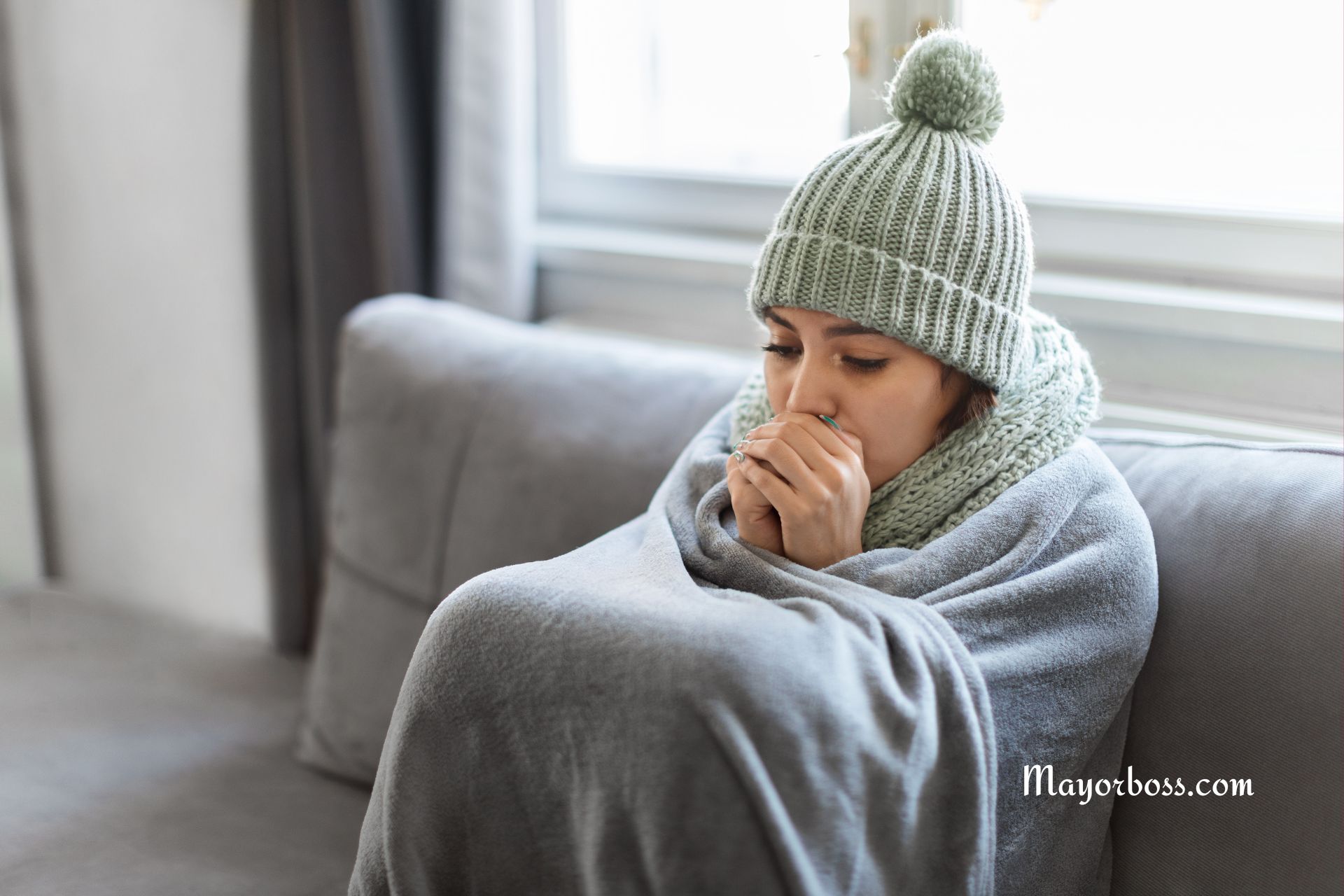You Have Chills? Here’s Why
Chills are those uncomfortable sensations of being cold even when you’re in a reasonably warm environment. Often (but not always), they’re accompanied by shivering and may precede a fever. While it’s easy to shrug them off as “just feeling cold,” they can also indicate an underlying medical reason. Understanding what might be causing your chills is important for your overall health and well-being. This article will provide in-depth reasons why you might experience chills.

What Are Chills?
Chills refer to a feeling of coldness, often accompanied by shivering and goosebumps. They are a side effect of how your body maintains its internal temperature. A region of the brain called the hypothalamus acts as the body’s thermostat. It works to keep your core temperature around 98.6ºF (37ºC).
When you get too cold, such as on a very chilly day, this triggers a complex bodily response involving shivering, constricted blood flow to the skin, and involuntary muscle contractions. These processes aim to generate heat. In essence, chills are your body’s way of trying to warm you back up.
Common Causes of Chills
Let’s look at the most common reasons for chills.
Infection
When you start fighting off a viral or bacterial infection, one of the initial reactions is fever. A fever is essentially your body elevating its internal temperature to help fight off harmful invaders. As your body raises its temperature, you might feel cold in comparison, leading to chills.
Common infections that can lead to chills include:
- Flu (influenza): You will also likely experience body aches, headache, cough, and a sore throat.
- Pneumonia: A lung infection often causing chills, shortness of breath, and chest pain.
- Strep throat: Chills accompanied by a severely sore throat are a telltale sign of strep throat.
- Urinary Tract Infections (UTIs): These usually produce painful urination and low back or pelvic pain along with chills.
- Meningitis: A medical emergency, meningitis inflames the protective membranes around your brain and spinal cord. Other critical symptoms include severe headache, stiff neck, and light sensitivity.
Cold Environment
The simplest cause of chills is plain old being cold! Exposure to cold temperatures (like a cold snap, drafty room, or chilly water) can lead to chills and shivering. This is your body trying to warm you up before your internal temperature drops so low that you develop hypothermia, a dangerously low body temperature.
Anemia
Anemia occurs when you have lower-than-normal levels of hemoglobin in your red blood cells. Hemoglobin carries oxygen, and with anemia, your tissues aren’t getting enough. Being a vital process for heat generation, anemia can sometimes lead to feeling overly cold and having chills.
Hypothyroidism
Hypothyroidism is a condition where your thyroid gland doesn’t make enough thyroid hormone. A vital participant in metabolism regulation, a lack of thyroid hormone can slow bodily functions – including your ability to regulate temperature effectively. Consequently, a common symptom of hypothyroidism is being sensitive to cold and having chills.
Other Causes
Less common causes of chills can include:
- Low blood sugar (hypoglycemia): Particularly common in diabetics, hypoglycemia can result in chills alongside sweating, confusion, and dizziness.
- Emotional Responses: Sometimes, strong fear, anxiety, or excitement triggers physiological changes that mimic the feeling of having chills.
- Medication side effects: Chills can occasionally be a side effect of certain medications. If you suspect this may be the case, check the medication information or consult your doctor.
- Sepsis: A life-threatening condition where the body’s response to infection damages its own tissues. In addition to severe chills or shivering, it may involve a very high fever, rapid heart rate, confusion, and difficulty breathing. Sepsis requires immediate medical intervention.
- Food poisoning: Certain types of foodborne bacteria produce toxins that can trigger sudden chills, vomiting, and diarrhea.
- Kidney stones: Sometimes, a kidney stone causes significant chills alongside intense pain.
- Malaria: A mosquito-borne illness, malaria is marked by recurring periods of chills followed by fever and sweating.
- Certain cancers: Infrequently, a specific type of cancer, like lymphoma, can be an underlying cause of chills.
When to See a Doctor
In many cases, chills are short-lived and resolve on their own as your body temperature self-regulates or as you treat a mild infection. However, some warning signs indicate the need to see a doctor, including:
- Chills lasting more than a few days
- High fever (above 103°F/39.4°C)
- Stiff neck
- Severe headache
- Confusion
- Shortness of breath
- Persistent vomiting or diarrhea
How to Manage Chills at Home
If your chills are due to being cold or a mild illness like a common cold, there are several steps you can take to feel more comfortable:
- Warm-up: In cold temperatures, getting warmer using extra layers of clothing, warm blankets, or a warm bath or shower typically stops the shivering.
- Fluids: Drink plenty of warm liquids – teas, broths – to aid hydration and support immune function if you have a fever.
- Rest: Allow your body to recuperate adequately; this supports its ability to fight infection and regulate temperature.
- Over-the-counter medication: Acetaminophen (Tylenol) or ibuprofen (Advil) reduces fever and can relieve uncomfortable body aches associated with chills.
Frequently Asked Questions
1. I have chills but no fever. What does that mean? Not all chills involve fever. You could be chilly from environmental causes, anemia, medication side effects, or at the very start of an infection before your fever develops.
2. How can I stop chills? The best way to stop chills is by identifying and addressing the underlying cause. Depending on the reason you have chills, you might need to treat a fever, put on some warmer clothes, or discuss underlying medical conditions with your doctor.
